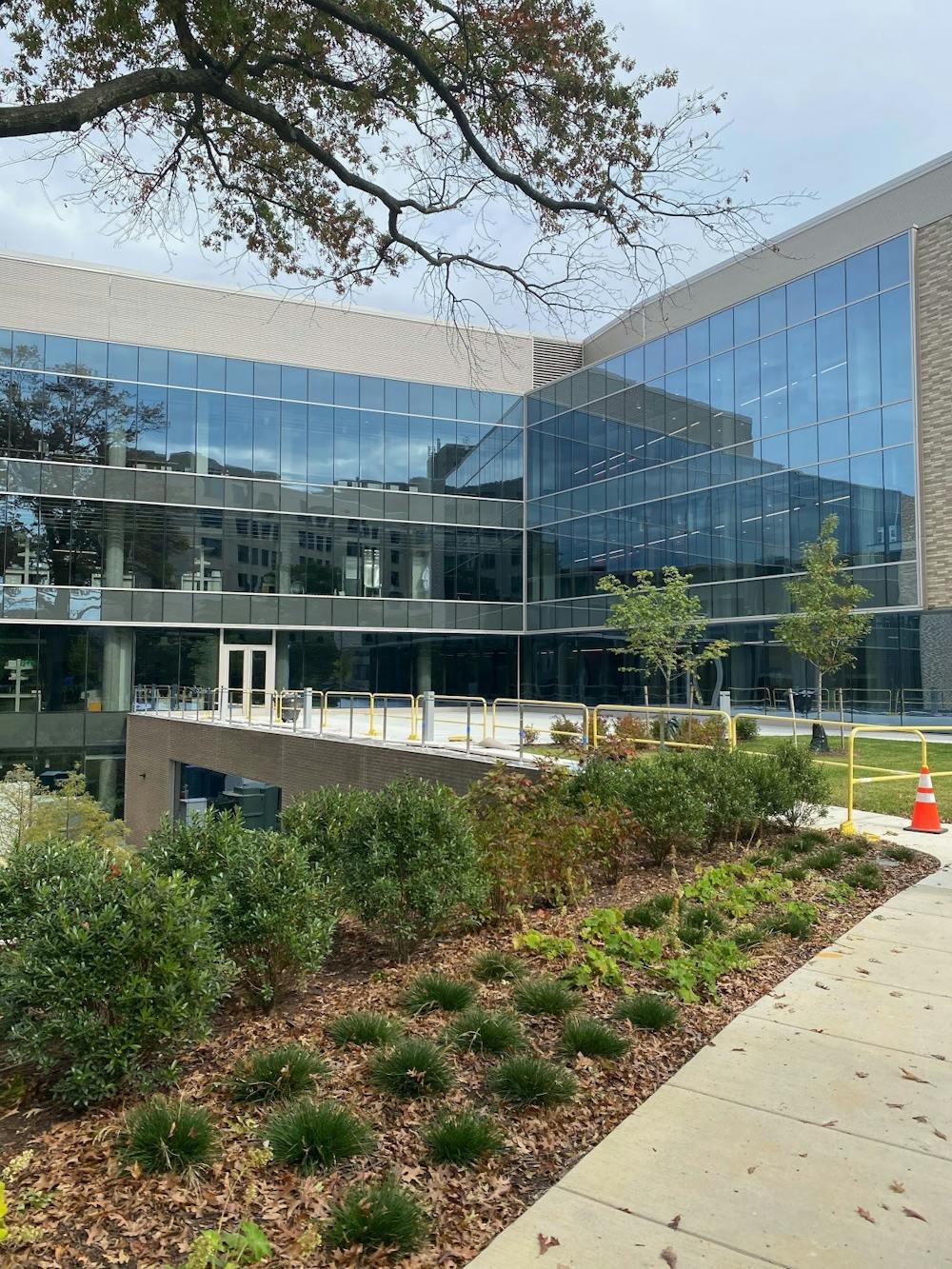American University’s Center for Neuroscience and Behavior received a $5 million endowment from the David and June Trone Family Foundation, President Sylvia Burwell announced in an email Wednesday.
The donation, made by University trustee and U.S. Rep. David Trone and his wife, June, establishes the University’s first Eminent Scholar faculty position and supports accompanying research and other academic costs in perpetuity, according to the email.
“The COVID-19 pandemic has accentuated the health threat of cognitive disorders such as addiction and the lack of effective, accessible treatments,” David Trone wrote in the email. “June and I believe the research at AU’s Center for Neuroscience and Behavior has the potential to drive transformational change in the way we address issues of addiction and mental health.”
Terry Davidson, a neuroscience professor and director of the Center for Neuroscience and Behavior, will be the first faculty member to occupy the Trone Family Eminent Scholar Chair in Neuroscience and Behavior.
A faculty member who receives the Eminent Scholar designation is usually well-established in their field and has pursued significant original research while at their given university.
Davidson called the Trone endowment “fantastically generous” and told The Eagle that it will allow him to expand his research efforts at AU, which focus primarily on the relationship between unhealthy diets, addiction and brain health.
“We’re trying to build AU’s science reputation here,” Davidson said. “Neuroscience is one area, but I’m interested in developing the natural sciences as a whole, and this kind of award is really a recognition of science at AU, so I am particularly pleased about that.”
Davidson’s research found that both diets high in saturated fat and sugar and drug abuse can damage the brain’s cognitive control, effectively creating a feedback loop where an individual is increasingly susceptible to continued behavioral excess.
Davidson and his students are currently working to identify effective methods of protecting the brain from damage caused by addiction and unhealthy eating habits, he said.
“Preliminary findings of AU researchers have yielded hopeful evidence that a drug that protects against hippocampal pathophysiology may also be effective in the treatment of both obesity and addiction,” the University said in a press release to the student body.
The donation comes as the latest move by the University to build its status as a STEM research institution and accelerates the University’s recently announced fundraising campaign Change Can’t Wait.
In May, the University’s Board of Trustees approved a Master of Science in neuroscience, though the graduate degree is currently only open to candidates for the PhD in Behavior, Cognition, and Neuroscience.
University spokesperson Lisa Stark said that the College of Arts and Sciences hopes to make a master’s program in neuroscience available to non-PhD students, but the timeline for that degree remains unclear.
Other recent STEM investments include the construction of the Hall of Science and the Don Myers Technology and Innovation Building, which houses laboratories, the AU Game Center and the Design and Build Lab.
This is a developing story and will be updated as more information becomes available.





